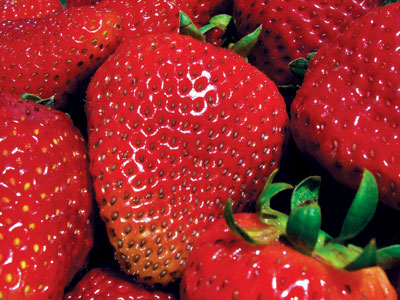All Nonfiction
- Bullying
- Books
- Academic
- Author Interviews
- Celebrity interviews
- College Articles
- College Essays
- Educator of the Year
- Heroes
- Interviews
- Memoir
- Personal Experience
- Sports
- Travel & Culture
All Opinions
- Bullying
- Current Events / Politics
- Discrimination
- Drugs / Alcohol / Smoking
- Entertainment / Celebrities
- Environment
- Love / Relationships
- Movies / Music / TV
- Pop Culture / Trends
- School / College
- Social Issues / Civics
- Spirituality / Religion
- Sports / Hobbies
All Hot Topics
- Bullying
- Community Service
- Environment
- Health
- Letters to the Editor
- Pride & Prejudice
- What Matters
- Back
Summer Guide
- Program Links
- Program Reviews
- Back
College Guide
- College Links
- College Reviews
- College Essays
- College Articles
- Back
Feedback on "Strawberries"
When I saw the last line of the poem, “Strawberries” by Katherine Yang, my eyes skimmed right past the other poems and to that one. I started to read it and eventually fell in love with the vivid details of the strawberries mentioned. And that’s also what the poem is about: strawberries. However, the way the poet describes them aren't as simple as the topic. She talks about the fruit and makes me crave for some, which is tough on me since I’m in a bus in the scorching heat right now. It’s okay, though, because the twist after the talk about cupcakes and strawberries makes me laugh and enjoy the piece.
This poem is written with such beautiful sensory details, I can't help imagining the scene. “The sunlight streams into the room like creamy lemon chiffon” is an example of a line that strikes my senses of sight and taste. The following lines also plays with my senses, like when it says, “Water runs, a knife flashes like silver and cuts through strawberries,” I can hear the rushing water from the faucet. The whole stanza surprises me because in just five lines, I can clearly picture and feel the scene.
I also love the twist at the end of Katherine’s poem because it really portrays how life works. When she wrote, “I pick up the largest, reddest strawberry and take a bite,” readers wouldn't expect the next line or for the poem to even have one but it does. And that’s: “It's sour.” These last two lines go to show not everything in life is sweet and amazing, even though things might seem like that. The poem also teaches the classic, “Don't judge a book by its cover.” All these meaningful lessons in a single 11-line poem on glistening strawberries makes this poem one of those unexpected things in life as well, like the strawberry the poet ate.

Similar Articles
JOIN THE DISCUSSION
This article has 0 comments.
